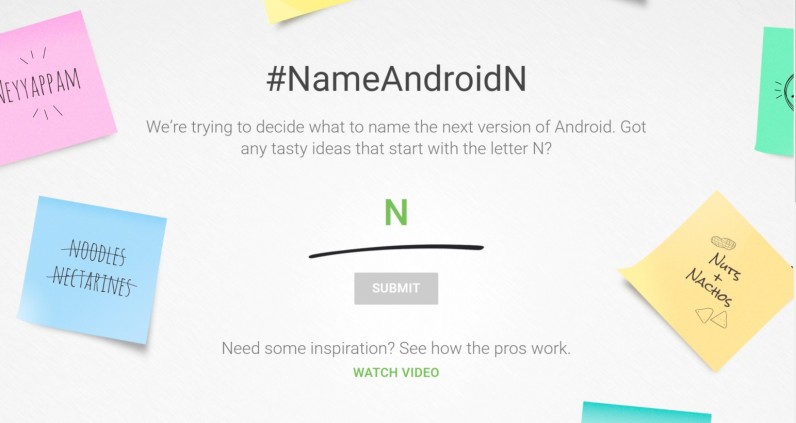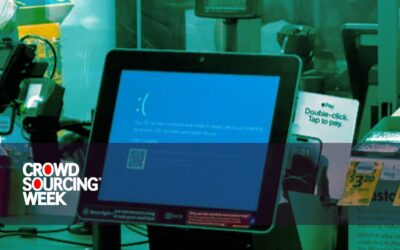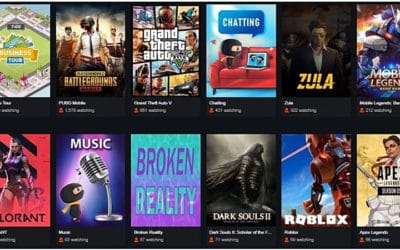Check out our curated Weekly Roundup of the breaking news and must-read thought leadership pieces on the crowd economy spotted by the Crowdsourcing Week team
Google is crowdsourcing the name of the newest version of Android
Any idea how to name the next version of Android?! Google wants you to name the N in android N. Check android.com/n if you have anything fancy on your mind
Google always names its newest version of Android after a dessert, in alphabetical order. This year it’s doing something a bit different: you get to pick the name. You can head on over to android.com/n to submit your vote. While it seems it doesn’t have to be dessert this time around – ‘Nuts’ and ‘Nachos’ are examples on suggestion site – my vote still definitely goes to Nutella (because it’s Nutella, duh).
BeMyEye acquires French competitor Local Eyes
London-based mobile crowdsourcing app, BeMeEye, has not just raised €6.5 million on funding, but also has acquired its French competitor LocalEye. More here
“Ultimately, we want to offer as many people as possible a new way to earn money and we want to improve the way they perceive work by making it fun, rewarding and on their terms. We are doing this by building Europe’s largest crowd of real world data gatherers, who earn money by completing gamified challenges set by businesses in their local area,” BeMyEye CEO Luca Pagano tells TechCrunch.
Deloitte announces Deloitte Pixel, a worldwide enterprise “crowdsourcing” offering
This Forbes article shares details of Deloitte turning to crowdsourcing, launching Deloitte Pixel, an innovative way to find new solutions to traditional problems
Deloitte today announced the launch of Deloitte Pixel, a worldwide enterprise “crowdsourcing” offering. This capability “enables Deloitteteams and clients to leverage external crowds to access specific, difficult-to-find expertise, collaborate to develop new products or ideas, and even design, build and test new digital assets”, it says. “At Deloitte, we are not aiming to build a crowdsourcing platform, but rather, to grow a ‘crowd of crowds’ which allows us, where appropriate, to take a crowdsourced approach to solving our clients problems” he added. The reason Deloitte calls it “pixel,” he says, is because you can break down a problem and put it in another context. A banking client needing an algorithm to resolve an issue may be surprised to find that when moved from banking to an energy and resources context it gets a solution via the crowd that works – and no confidences are divulged.
Caribbean Memory Project, the first crowdsourced research platform to preserve cultural heritage
Caribbean Memory Project, launched in 2014, is crowdsourcing family histories to preserve the region’s cultural heritage
The Vernacular Digital Archiving Project,’ was an academic inquiry designed to activate and engage the memory of cultural heritage among a mixed audience and to aid in counteracting the effects of erasure and forgetting occurring in a growing number of contemporary Caribbean communities. We’re motivated by enduring questions of citizenship and its related responsibilities—to a family, a community, a country—which are central to the conceptualization and sustainable enactment of Caribbean identity. CMP functions as a public repository for texts—family archives, collections, found/discarded materials, and public databases—that begins to illustrate the range of documentary activity produced by (and about) Caribbean people and their descendants.
Israeli Self-Organizing Network (SON) solutions provider Cellwize acquires Israeli startup CrowdX
Self-Organizing Network (SON) solutions provider Cellwize will enhance its offering with crowdsourcing. Find out more about both companies here
Cellwize CEO Ofir Zemer said,“The mobile network environment, consisting of various radio technologies, vendors and services, is becoming ever more complex, making the mobile user experience more difficult to measure and optimize. We at Cellwize strive to enable operators to provide a personalized network experience to their subscriber base. We have seen that collecting and analyzing anonymized data directly from end-user devices, including new data points such as indoor/outdoor, Wi-Fi handover and roamer experience, and cross-correlating them with the network data already processed by Cellwize is essential in order to provide operators with a whole new view of their customers’ mobile journey and quality of experience (QoE).”
How crowdsourcing is helping women in India fight for their rights to free maternal health services
The Mera Swasthya Meri Aawaz (MSMA) project, is the first project to ever track illicit maternal fees demanded in government hospitals located in the northern state of Uttar Pradesh
MSMA (“My Health, My Voice”) is part of SAHAYOG, a non-governmental umbrella organization that helped launch the project. MSMA uses an Ushahidi platform to map and collect data on unofficial fees that plague India’ ostensibly “free” maternal health services. It is one of the many projects showcased in DW Akademie’s recently launched Digital Innovation Library. SAHAYOG works closely with grassroots organizations to promote gender equality and women’s health issues from a human rights perspective.”Our project provides poor rural women with a technology that’s easy to use and that they can access via their mobile phones,” Sandhya says. “It empowers women to make complaints and report illicit demands for payments in public health facilities for services that are supposed to be free.”
Image: thenextweb
There are many fantastic stories out there. What else caught your eye this week? Did you come across some breaking news or a good thought piece? Do share them with us…




0 Comments